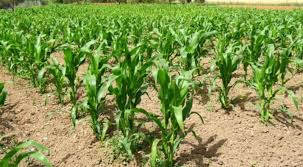Lemon farming
Lemon farming is the process of cultivating lemon trees for the purpose of producing lemons, which are a popular citrus fruit known for their sour taste and high vitamin C content. Lemons are used in a variety of culinary applications, as well as for their health benefits and uses in beauty and cleaning products.
Here are some key aspects of lemon farming:
Click on the link 🔗🖇️👇
Climate and Growing Conditions: Lemons thrive in warm, subtropical or Mediterranean climates. They require full sun exposure and well-drained soil with a pH level between 5.5 and 6.5. Lemon trees are susceptible to frost, so they should be protected during cold weather.
Varieties: There are several lemon varieties available for farming, such as Eureka, Lisbon, Meyer, and Ponderosa. Each variety has its own unique characteristics, including differences in flavor, size, and cold tolerance. The choice of variety depends on the specific requirements and preferences of the farmer.
Propagation: Lemon trees can be propagated through seeds, cuttings, or grafting. However, commercial lemon farming primarily relies on grafting, as it ensures consistency in fruit quality and reduces the time required for the tree to bear fruit.
Planting: Lemon trees should be planted in well-prepared soil, preferably enriched with organic matter. Adequate spacing between trees is essential to allow air circulation and prevent the spread of diseases. The ideal spacing may vary depending on the lemon variety and the type of farming system employed.
Irrigation and Fertilization: Lemon trees require regular watering, especially during dry periods. The frequency and amount of irrigation depend on factors like soil moisture retention, climate, and tree age. Fertilizers rich in nitrogen, phosphorus, and potassium are typically applied to promote healthy growth and fruit production.
Pest and Disease Management: Lemon trees can be susceptible to various pests and diseases, including aphids, citrus leaf miners, citrus canker, and root rot. Implementing integrated pest management strategies, such as regular monitoring, cultural practices, and judicious use of pesticides, can help control these issues.
Harvesting: Lemon trees usually start producing fruit within 2 to 5 years after planting, depending on the variety and growing conditions. The maturity of lemons can be determined by their color, size, and taste. Harvesting is typically done by hand, and it is important to handle the fruit carefully to avoid damage.
Marketing and Distribution: Once harvested, lemons can be sold directly to consumers, local markets, restaurants, or wholesalers. Developing relationships with buyers and establishing effective marketing strategies are important for successful lemon farming.
It's worth noting that lemon farming practices can vary depending on the region, climate, and specific goals of the farmer. Consulting with local agricultural experts or joining relevant farming associations can provide valuable insights and guidance tailored to your specific location and circumstances.
Click on the link 🔗🖇️👇




Comments
Post a Comment